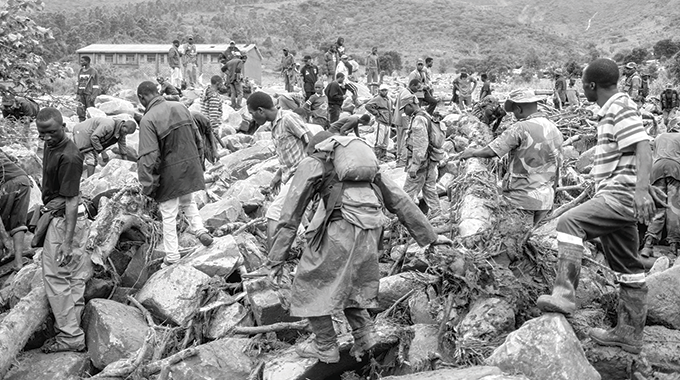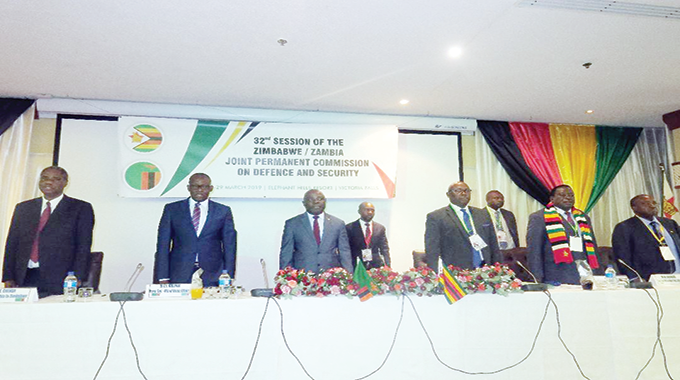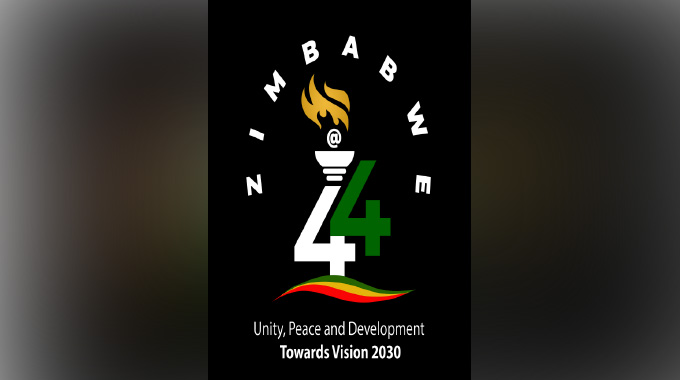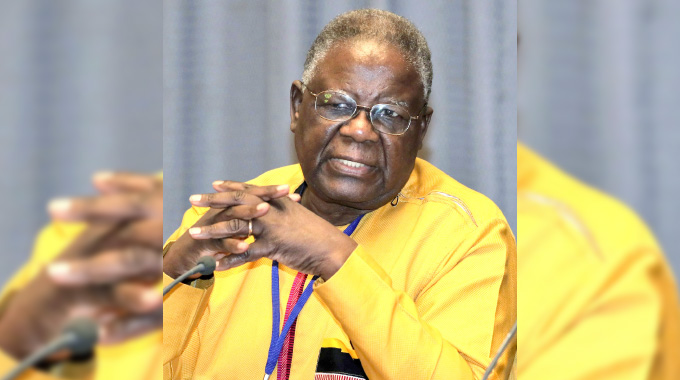Need for holistic humanitarian response to Cyclone Idai disaster

Itai Rusike, Correspondent
The loss of lives, displacement of people, loss of livestock and crops, destruction of property and infrastructure following heavy rains and flooding caused by the recent Cyclone Idai that ravaged mainly Chimanimani, Chipinge, Bikita and Chikomba districts in Zimbabwe is a sad chapter for the nation.
The fierce and devastating storm has left in its wake a still unknown death toll as some areas are still inaccessible – the death toll is rising.
It left survivors with broken limbs and needing immediate medical attention, food, housing and clean water. The cyclone also affected some parts of neighbouring Mozambique and Malawi.
The fate and survival of the victims now solely depends on how the government, friendly nations, UN agencies, non-governmental organisation (NGOs) and civil society organisations (CSOs) and individuals mobilise resources to placate them from their current predicament.
It is a fact that people in the affected areas are facing a public health crisis of considerable proportions.
The public health facilities destroyed by Cyclone Idai have been a buffer between people and the impoverishing and fatal impacts of ill health caused by such conditions.
The massive destruction of water and sanitation infrastructure is thus a major crisis for poor people in the affected communities, and leaves people starkly exposed to severe health risk, including waterborne diseases such as cholera and typhoid.
Admittedly, the impact of the cyclone is much disastrous in the context of the current shortages of medicines, obsolete equipment as well as shortages of doctors and nurses. The alarming death toll from Cyclone Idai, is a warning of wider risks to health and of wider failures to manage such natural disasters.
People with chronic diseases and conditions such diabetes, cancer, asthma and HIV/AIDS will need urgent support so that they do not miss their treatment and risk developing complications. Such groups have difficulty taking medications when they do not have adequate food to eat.
Hopefully, the public health community and the government will respond to this not only as an emergency response to the cyclone, but with a public health response and measure to rescue the public sector health system, especially the primary health care and services. While much attention is focused on the devastating impact of the cyclone, there is also need to distribute items such as bed nets and resources for spraying to prevent malaria outbreak in the affected areas.
The local clinics also need drugs for malaria treatment so that the sick can also be treated in time.
Distribution of aqua tablets to safeguard victims from waterborne diseases as most of the clean sources of water were destroyed or washed away.
In these painful circumstances, government should urgently craft and implement a holistic humanitarian response that benefit all affected citizens regardless of race, colour, creed, gender, age or political affiliation.
The current government intervention efforts are welcome. However, government should intervene in a way that addresses wider public health crisis, including in the public sector health system as well as involving communities and health civil society in their planning.
It should be noted that some NGOs such as CWGH have long experience and network at community level of people with abilities to organise and support primary health care, even, under harsh conditions.
The importance of national disaster preparedness and mitigation especially considering that Zimbabwe suffered another heavy loss in 2000 when the country was hit by Cyclone Eline cannot be overlooked.
The issue of preparedness also requires the government to capacitate fully the Department of Civil Protection Unit to ensure that when disasters like these strike, it can respond and save lives.
It is clear that many lives could have been saved had the authorities taken the Cyclone Idai warnings seriously and evacuated people from the affected areas.
Very little was said on national radio, television or newspapers about the cyclone to the effect that most families were caught unawares.
CWGH, as an organisation deeply-rooted in the communities, expresses its solidarity with the people of Zimbabwe will work with all stakeholders at all levels to assist the victims of the disaster both in the short and long-term.
– Itai Rusike is the Executive Director of the The Community Working Group on Health (CWGH). CWGH is a network of national membership based civil society and community based organisations who aim to collectively enhance community participation in health in Zimbabwe.












Comments